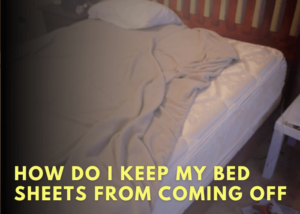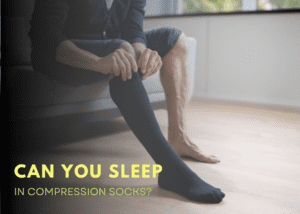Is it possible for me to say something that could be incriminating while I sleep? Can my partner understand what I’m saying in my sleep?
Most sleep talk is incomprehensible and no more than a garbled, muted few words. You could assume your sleep talk could be incriminating if you are sleeping with a member of the police, but for most, sleep talk is the result and response to a dream. How could you be held accountable for your dreams?
What causes you to talk in your sleep?

No one knows, and sleep science has not cracked the code. Some triggers may make you talk in your sleep.
- Feverishness is caused by an illness such as a virus or bacterial infection, causing your body temperature to rise abnormally.
- High levels of anxiety and stress include work-related issues, domestic arguments, and money worries.
- Being overtired and a general lack of sleep.
- You may have a sleep disorder that needs further investigation.
There are many reasons and causes for sleep talking, with some researchers suggesting that sleep talk may be associated with rapid eye movement (REM sleep).
It could be the region of your brain that usually sedates your body for sleep, is still active, and allows speech.
Who sleep talks the most?
Children and adolescents. However, sleep talking is not just for the young, any age can sleep talk, but it’s more common in younger folks who are going through developmental stages.
What are you likely to talk about in your sleep?
Anything! So philanderers and criminals and those with bad intentions should care what they say. Actually, that’s not true.
Most sleep talk is unintelligible and sounds like a garbled, incoherent few seconds of words.
However, the speech can be unsettling for those of you who can articulate when sleeping as it’s often angry and full of expletives.
If you are dreaming and perceive to be in danger, then you will become aggressive. This is the normal speech for a sleep talker.
Certain situations can precipitate sleeping, such as financial worries, worries about a loved one, infidelity, and pressure at work to perform. Often there can be nothing behind the phenomenon.
Do sleep talkers tell the truth?
Possibly. It would be difficult to confront a partner over what was said while talking without divulging phone numbers and addresses, which is highly unlikely.
Sleep talking could not be the basis for a divorce or any other litigation if you think it could be used as evidence.
In most cases, the phrases, long or short, do not correlate with life and are the response to an intense dream or nightmare.
If you have a fever, then it is a strong possibility you may talk in your sleep. Your focus should be on the illness, not the words spoken while dreaming.
If you have a new medication, this can also cause sleep talking, so cut your partner some slack and enjoy the show while it lasts.
Can sleep talkers answer questions?
Not under oath! Yes, sleep talkers can answer questions, but they are likely to be part of the intense dream and will not make any sense to anyone.
On occasions, the sleep talker can make coherent sentences that you may find disturbing as they are not based on reality and have been triggered by some external stress.
There is a common thread that connects most sleep talkers. They never remember what has been said or the dream.
Could you use the words spoken when sleeping talking as the basis for divorce?
If you are crazy, there is no correlation between real-life situations and what is said by someone or your partner sleep talking.
It would be a brave lawyer who risked their reputation on the evidence of words spoken when someone is sleeping.
If you want a divorce, there are dozens of reasons that you can apply to any normal marriage if you want to start divorce proceedings.
Can depression cause sleep talking?
Yes, people suffering from anxiety, depression, and, more importantly, post-traumatic stress disorder (PTSD) and other cognitive issues are more susceptible to sleep talking.
For children, sleep talking is frequently associated with nightmares and night sweats.
How can I stop talking in my sleep naturally?
You can try to keep your bedroom cool. It suggested no specific remedy to prevent you from sleep talking.
The standard ways to avoid sleep talking would be to avoid stress and establish a sleep routine, so you are getting plenty of restful sleep every night.
Sleep talking is associated with high temperatures from fever, so it’s worthwhile keeping your bedroom cool through the night to see if this helps.
If all else fails, you can see your doctor for some advice and a referral to a sleep specialist.
What happens in your brain when you sleep talk?
Neural signals are not being suppressed. Your body is paralyzed during the REM sleep cycle, and it is suggested that people who sleep talk are experiencing a failure in the neural pathways that would normally inhibit speech.
What part of the brain controls sleep talking?
Ventrolateral preoptic nucleus (VLPO). During normal wake periods during the day, your brain sends out signals via neurotransmitters for your body to function.
The VLPO inhibits the neurotransmitters at night as you start to wind down and prepare for sleep. The VLPO slowly closes your arousal centers and promotes deep healthy sleep.
How can you sleep better?
Follow some simple rules to make your sleep healthier.
- Take daily exercise and eat a healthy diet that supports your lifestyle.
- Avoid food that contains sugar and caffeine. These include tea, coffee, energy drinks, and more.
- Avoid spicy foods and greasy foods before bedtime, eat early evening and try not to snack before sleeping.
- Switch off computers and smartphones and the TV for 30 minutes before sleeping.
- Keep your bedroom cool, dark, and quiet.





